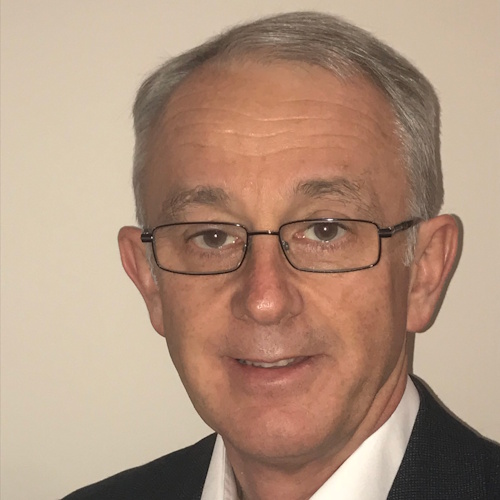Transforming our future: prediction, prevention and early diagnosis in healthcare

On Tuesday 17 and Wednesday 18 February 2026, the Royal Society will hold a conference on prediction, prevention and early diagnosis in healthcare.
This two-day conference will bring together leading voices from industry, academia, government, and the wider healthcare community to explore the innovative science that is transforming our approach to disease prediction, prevention and diagnosis. Through talks and panel discussions, we will examine recent advances in both technological and population-based approaches, as well as the complex challenges associated with implementation.
Transforming our Future conferences
This conference forms part of the Royal Society's industry-focused Transforming our Future series. These unique meetings showcase cutting-edge science and bring together experts to explore and address key scientific and technical challenges of the coming decade.
Attending this event
In-person attendance is limited and by invitation only. Please contact industry@royalsociety.org to enquire about whether any places are available.
This conference is supported by AstraZeneca.
Organisers
Schedule
| 09:30-09:35 |
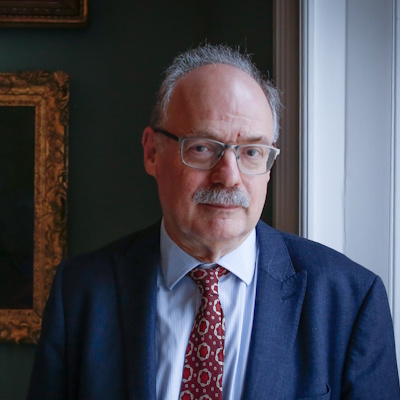
Sir Mark Walport FRCP FMedSci HonFRSE FRSThe Royal Society 
Sir Mark Walport FRCP FMedSci HonFRSE FRSThe Royal Society Sir Mark Walport is Foreign Secretary and Vice President, the Royal Society. He chairs Imperial College Health Partners, Imperial College Academic Health Sciences Centre and the Kennedy Memorial Trust. He is a non-executive board member of NHS England, and trustee of the British Museum and the Daiwa Anglo-Japanese Foundation. |
|---|
| 09:35-10:40 |
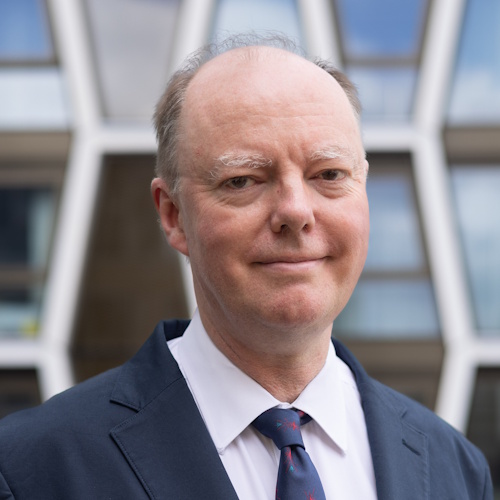
Professor Chris WhittyChief Medical Officer for England 
Professor Chris WhittyChief Medical Officer for England Professor Chris Whitty is the Chief Medical Officer (CMO) for England, the UK Government’s Chief Medical Adviser, and head of the public health profession. He is a practising NHS Consultant Physician at University College London Hospitals (UCLH) and the Hospital for Tropical Diseases, as well as a Visiting Professor at Gresham College. An epidemiologist by background, Chris has carried out extensive research and clinical work in the UK, Africa, and Asia. Before becoming CMO, he was Professor of Public and International Health at the London School of Hygiene and Tropical Medicine (LSHTM), where he now holds an honorary professorship. From December 2024 to June 2025, Chris served as interim Permanent Secretary at the Department of Health and Social Care (DHSC). Prior to that, he was the Department’s Chief Scientific Adviser from January 2016 to August 2021, overseeing research and development and serving as head of the National Institute for Health Research (NIHR), the government’s principal funder of clinical, public health, social care, and translational research. He also served as interim Government Chief Scientific Adviser from 2017 to 2018, during which he played a key role in the government’s response to the Novichok poisonings. Earlier in his career, he was Chief Scientific Adviser at the Department for International Development (DFID), where he led technical work on major global health challenges, including the West Africa Ebola outbreak and other international health emergencies. 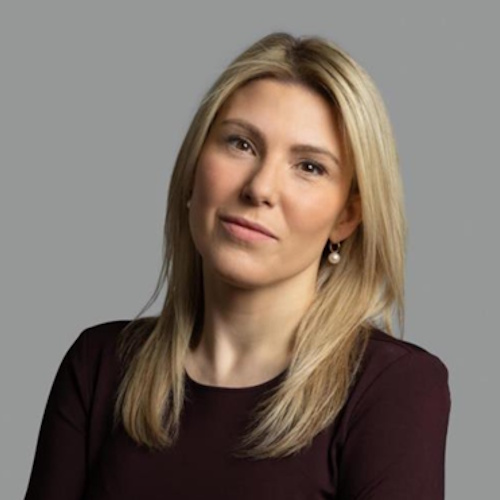
Dr Charlotte RefsumTony Blair Institute 
Dr Charlotte RefsumTony Blair Institute Dr Charlotte Refsum is a trained physician and expert in health policy. Her work focuses on harnessing the power of AI and other technology to drive prevention, create sustainable health systems and achieve health for all. Working alongside Sir Patrick Vallance and Sir John Bell, her thought leadership contributes significantly to policy discussions of social-care policy, biotechnology and health care in the AI era. Over the course of her career, Charlotte has worked in 25 countries to support the transformation of health systems globally. TBA
TBA |
|---|
Chair
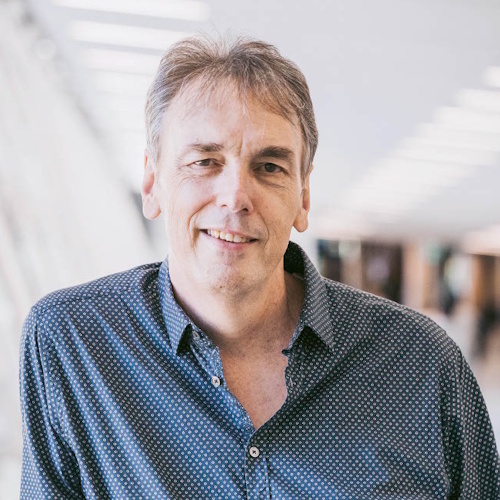
Professor Sir Peter Donnelly FRS
Genomics Ltd

Professor Sir Peter Donnelly FRS
Genomics Ltd
Professor Peter Donnelly FMedSci FRS is Professor of Statistical Science at the University of Oxford and the Founder and CEO of Genomics plc. After studying for a doctorate in Mathematics in Oxford as an Australian Rhodes Scholar, he had a world-leading academic career in statistical and human genetics which included Professorships at the Universities of London, Chicago, and Oxford, and a decade as Director of Oxford’s Wellcome Centre for Human Genetics. Peter has been one of the drivers of the “Genetic Revolution”, the explosion in our knowledge of genetic variants associated with common human diseases and the increasing use of genetics in clinical medicine, through his leadership of the landmark Wellcome Trust Case Control Consortium, the International HapMap Consortium, and the WGS500 project, which pioneered whole genome sequencing in clinical medicine and led to the UK NHS 100,000 Genomes project. He is one of the global leaders in the development of statistical and machine learning algorithms to analyse and extract insights from modern genomic “big data”, with his papers introducing new methods cited over 40,000 times. Peter chaired the Royal Society’s policy working group on Machine Learning.
| 11:10-11:15 |
Introduction to Session 1

Professor Sir Peter Donnelly FRSGenomics Ltd 
Professor Sir Peter Donnelly FRSGenomics Ltd Professor Peter Donnelly FMedSci FRS is Professor of Statistical Science at the University of Oxford and the Founder and CEO of Genomics plc. After studying for a doctorate in Mathematics in Oxford as an Australian Rhodes Scholar, he had a world-leading academic career in statistical and human genetics which included Professorships at the Universities of London, Chicago, and Oxford, and a decade as Director of Oxford’s Wellcome Centre for Human Genetics. Peter has been one of the drivers of the “Genetic Revolution”, the explosion in our knowledge of genetic variants associated with common human diseases and the increasing use of genetics in clinical medicine, through his leadership of the landmark Wellcome Trust Case Control Consortium, the International HapMap Consortium, and the WGS500 project, which pioneered whole genome sequencing in clinical medicine and led to the UK NHS 100,000 Genomes project. He is one of the global leaders in the development of statistical and machine learning algorithms to analyse and extract insights from modern genomic “big data”, with his papers introducing new methods cited over 40,000 times. Peter chaired the Royal Society’s policy working group on Machine Learning. |
|---|---|
| 11:15-11:30 |
From population data to personalised care: the evolution of clinical risk prediction
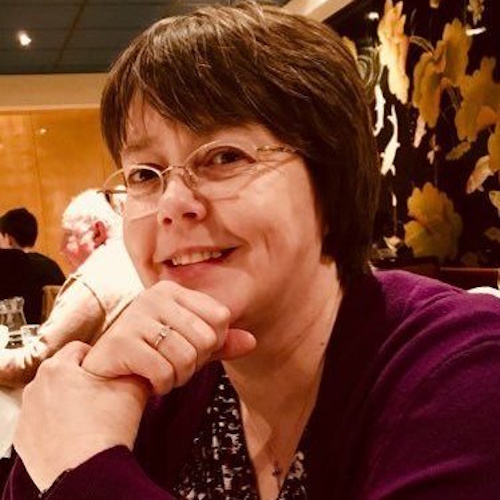
Professor Julia Hippisley-CoxQueen Mary University of London 
Professor Julia Hippisley-CoxQueen Mary University of London Professor Julia Hippisley-Cox is Professor of Clinical Epidemiology and General Practice at Queen Mary University of London, Fellow of the Academy of Medical Sciences, Fellow of the Royal College of Physicians and an NIHR Senior Investigator. She has pioneered the use of large-scale electronic health record data to develop, validate, and implement clinical risk prediction models that improve prevention, diagnosis, and patient outcomes. She created the first risk prediction models using routinely collected electronic health care data and has continued to update and refine them as new evidence emerges. These innovations have directly informed NICE guidance and driven updates to national clinical guidelines. As founder and director of QResearch, one of the world’s largest medical research databases, she has led the development of tools such as QRISK, QDiabetes and, QCancer – now embedded in NHS systems and used over 10 million times each year to identify patients at high risk of major conditions where early intervention can improve outcomes. Their widespread adoption has brought probabilistic reasoning and risk-based decision-making into everyday clinical practice, enabling more personalised and data-informed care. During the COVID-19 pandemic, Professor Hippisley-Cox developed QCOVID at the request of the UK Chief Medical Officers, guiding shielding policy, vaccine prioritisation, and subsequent vaccine safety analyses. Her contributions have been recognised with the RCGP John Fry Award, the Florence Nightingale Award from the Royal Statistical Society, and six Research Paper of the Year awards. She remains committed to rigorous, transparent research that strengthens the evidence base for patient care. |
| 11:30-11:45 |
Moving beyond age to stratify population health

Dr Seamus HarrisonGenomics Ltd 
Dr Seamus HarrisonGenomics Ltd Dr Seamus Harrison is Chief Medical Officer at Genomics Ltd, where he leads on translation of genetic technology into products and services that improve human health and longevity. He leads on initiatives such as partnerships with Our Future Health, Bupa, and also with biopharma partners. A cardiovascular surgeon by training, he served as a consultant at Addenbrooke’s Hospital, Cambridge, where he led the regional aneurysm screening service for Cambridgeshire. He is also formally trained in genetic epidemiology, earning a PhD from UCL. His research spans cardiovascular genetics, Mendelian randomisation, screening and patient safety, and he received funding from the British Heart Foundation and MRC. |
| 11:45-12:00 |
Clonal haematopoiesis and progression to myeloid cancer
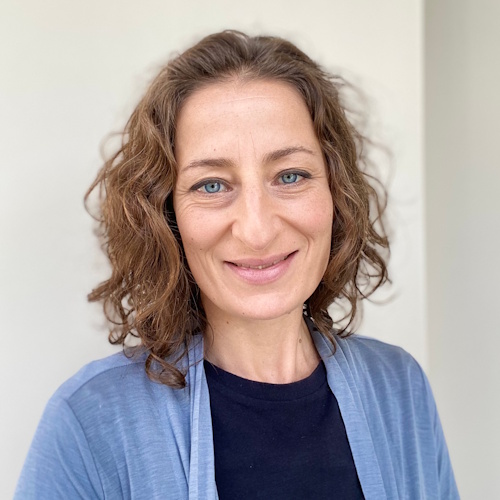
Dr Margarete FabreAstraZeneca and University of Cambridge 
Dr Margarete FabreAstraZeneca and University of Cambridge Margarete is the Oncology Lead in the Centre for Genomics Research at AstraZeneca, and an Honorary Consultant Haematologist at Addenbrooke’s Hospital in Cambridge. Following her medical training at Oxford University, she trained as an academic haematologist in London and Cambridge, focussing on haematopoietic ageing and the pre-clinical evolution of cancer. She co-leads the NHS Clonal Haematopoiesis Clinic in Cambridge, with the goal of preventing haematological malignancies. Since 2022, she has also led the Oncology research and development at the AstraZeneca Centre for Genomics Research in Discovery Sciences. |
| 12:00-12:15 |
Q&A
|
| 13:15-13:20 |
Introduction to Session 2

Professor Sir Peter Donnelly FRSGenomics Ltd 
Professor Sir Peter Donnelly FRSGenomics Ltd Professor Peter Donnelly FMedSci FRS is Professor of Statistical Science at the University of Oxford and the Founder and CEO of Genomics plc. After studying for a doctorate in Mathematics in Oxford as an Australian Rhodes Scholar, he had a world-leading academic career in statistical and human genetics which included Professorships at the Universities of London, Chicago, and Oxford, and a decade as Director of Oxford’s Wellcome Centre for Human Genetics. Peter has been one of the drivers of the “Genetic Revolution”, the explosion in our knowledge of genetic variants associated with common human diseases and the increasing use of genetics in clinical medicine, through his leadership of the landmark Wellcome Trust Case Control Consortium, the International HapMap Consortium, and the WGS500 project, which pioneered whole genome sequencing in clinical medicine and led to the UK NHS 100,000 Genomes project. He is one of the global leaders in the development of statistical and machine learning algorithms to analyse and extract insights from modern genomic “big data”, with his papers introducing new methods cited over 40,000 times. Peter chaired the Royal Society’s policy working group on Machine Learning. |
|---|---|
| 13:20-13:35 |
Personalising CV risk — the way forward
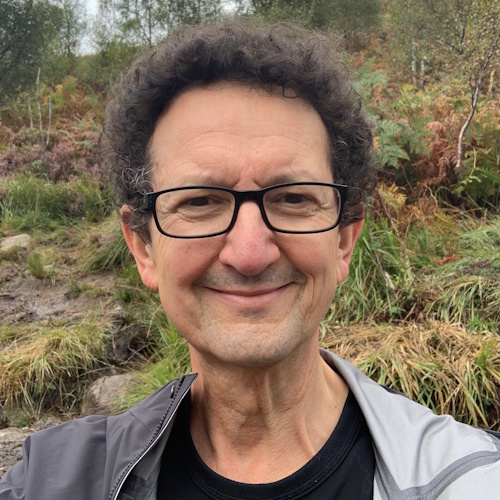
Professor Ahmet FuatOrchard Court Surgery Darlington and Durham University 
Professor Ahmet FuatOrchard Court Surgery Darlington and Durham University Professor Ahmet Fuat was a GP in Darlington, County Durham for 37 years, where he was CVD and Research Leads for Darlington Primary Care Network and Darlington GP Federation. He joined Oberoi Consulting as Medical Director in September 2023 and also works as an Honorary Consultant Lipidologist/GPSI within the diabetes and endocrinology team at County Durham and Darlington Foundation Trust, running a secondary prevention and genetic lipid clinic. He has been a GPSI Cardiology for over 25 years having undertaken a Postgraduate Diploma in Cardiology at Bradford University graduating with distinction. He went on to be a tutor on the course for many years teaching on HF, HVD, AF and IHD. He started the first one stop diagnostic and integrated heart failure clinic in the UK in 2002 with local colleagues. His PhD by research in heart failure diagnosis and management including work on natriuretic peptides generated several publications that have informed guidelines and led to the award of an Honorary Professorial Chair at Durham University. He has contributed to various NICE and ESC CVD and HF guidelines, and RCGP CKD/AKI toolkit. He has held and holds various roles in CVD and research including the being past President, education and research leads of the Primary Care Cardiovascular Society (PCCS) which he was instrumental in reforming, and previous Lipid and Heart Failure primary care lead for North East and North Cumbria Academic Health Science Network. He sits on the NHSE CVD Prevention Clinical Leadership group and NHSE expert advisory group for Heart Failure and Heart Valve disease. He was a founder member of CaReMe UK representing the PCCS. He is currently Vice Chair of the HEART UK Lp(a) Task Force, and advisor to Pumping Marvellous, a Heart Failure patient charity. He has a passion for medical education and remains an active lecturer, tutor and researcher. He is on the editorial boards of the British Journal of Cardiology and Primary Care Cardiovascular Journals and a peer reviewer for most high impact Cardiovascular journals and research bodies. His work in community cardiology has been recognised with Fellowships from the RCGP, RCP London and RCP Edinburgh, ESC and the PCCS. He has led many quality improvement initiatives over the years in HF, AF, Lipids, hypertension, diabetes and CKD. His work on HF was included in their BHF blueprint for HF. Much of this work was carried out using Oberoi digital adit platforms as has been replicated by colleagues across the UK, benefiting patients and practices positively. |
| 13:35-13:50 |
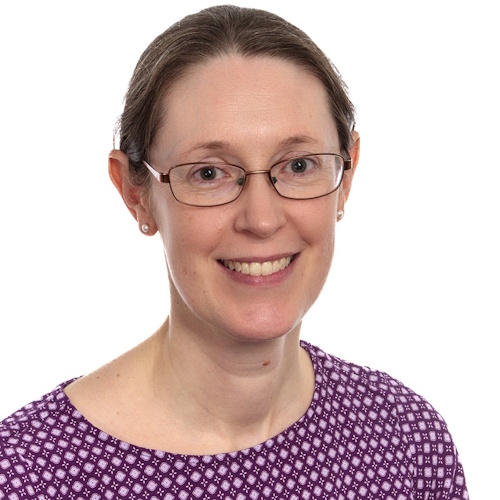
Dr Juliet Usher-SmithUniversity of Cambridge 
Dr Juliet Usher-SmithUniversity of Cambridge Dr Juliet Usher-Smith is an Associate Professor in General Practice and Head of the Primary Care Unit in the Department of Public Health and Primary Care at the University of Cambridge. Her research focuses on optimising the implementation of risk-stratified medicine to promote prevention and early detection of cancer and cardiovascular disease. This includes the development and validation of risk models, evaluation of the societal, psychological and behavioural aspects associated with their use, and conducting trials of incorporating risk models within clinical pathways. She has a particular interest in risk-stratified bowel cancer screening and risk assessment for breast cancer amongst young women and has led work on understanding and overcoming technical barriers to implementation of risk assessment within primary care. |
| 13:50-14:05 |
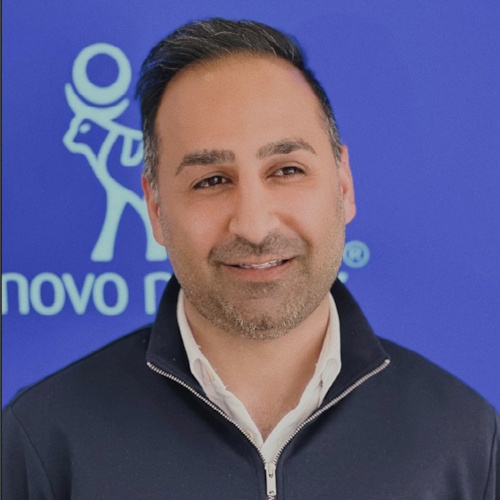
Professor Nadeem SarwarNovo Nordisk 
Professor Nadeem SarwarNovo Nordisk |
| 14:05-14:15 |
Q&A
|
Chair
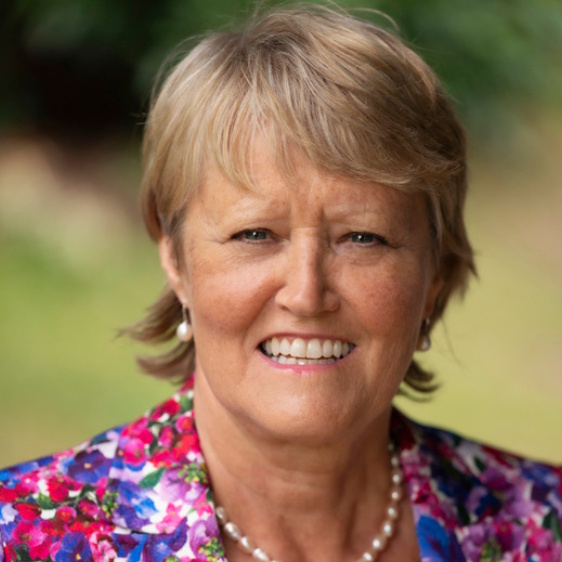
Professor Dame Sue Hill
Chief Scientific Officer for England and Senior Responsible Officer for Genomics in the NHS

Professor Dame Sue Hill
Chief Scientific Officer for England and Senior Responsible Officer for Genomics in the NHS
Professor Dame Sue Hill DBE FMedSci FRSB FRCP(Hon) FRCPath (Hon) FHCS (Hon) is the Chief Scientific Officer for England and the NHS in England, is the Head of Profession for the scientific workforce and provides scientific leadership and advice for the wider health and care system. A respiratory scientist by background, she has an international academic and clinical research reputation. Dame Sue leads and directs Genomics in the NHS, driving the world-leading programme to introduce a nationwide Genomic Medicine Service working in partnership between the NHS and academia, industry, UK and international governments/initiatives, building on her work in heading up the NHS contribution to the world-leading 100,000 Genomes Project. Sue was made a Dame Commander in 2018 in recognition of the scale of her contribution to British genomics, having previously been awarded an OBE in 2005 in recognition of her services to healthcare science.
| 14:35-14:40 |
Introduction to Session 3

Professor Dame Sue HillChief Scientific Officer for England and Senior Responsible Officer for Genomics in the NHS 
Professor Dame Sue HillChief Scientific Officer for England and Senior Responsible Officer for Genomics in the NHS Professor Dame Sue Hill DBE FMedSci FRSB FRCP(Hon) FRCPath (Hon) FHCS (Hon) is the Chief Scientific Officer for England and the NHS in England, is the Head of Profession for the scientific workforce and provides scientific leadership and advice for the wider health and care system. A respiratory scientist by background, she has an international academic and clinical research reputation. Dame Sue leads and directs Genomics in the NHS, driving the world-leading programme to introduce a nationwide Genomic Medicine Service working in partnership between the NHS and academia, industry, UK and international governments/initiatives, building on her work in heading up the NHS contribution to the world-leading 100,000 Genomes Project. Sue was made a Dame Commander in 2018 in recognition of the scale of her contribution to British genomics, having previously been awarded an OBE in 2005 in recognition of her services to healthcare science. |
|---|---|
| 14:40-14:55 |
UK Biobank: scale, depth, duration … but, most importantly, accessibility
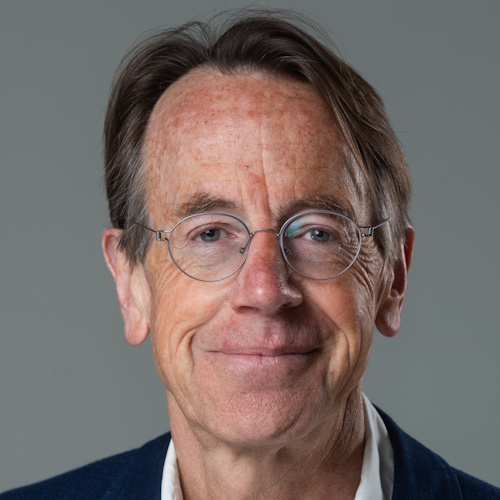
Professor Sir Rory CollinsUK Biobank 
Professor Sir Rory CollinsUK Biobank Rory Collins is an epidemiologist who studies prevention and treatment of chronic diseases. He is the founding Head of Oxford University’s Nuffield Department of Population Health. During the past 40 years, he has conducted large randomised trials which have demonstrated that clot-dissolving and clot-preventing treatments during a heart attack more than halve mortality, and that lowering LDL-cholesterol with statins safely reduces cardiovascular death and disability. He has led UK Biobank since 2005. Involving 500,000 participants, it is the largest deeply-characterized prospective study globally, available for health research. About 20,000 researchers worldwide actively use it, generating ~5000 papers in 2024 alone. |
| 14:55-15:10 |
Our Future Health: The world’s largest consented cohort and resource for population health, genomics and prevention research
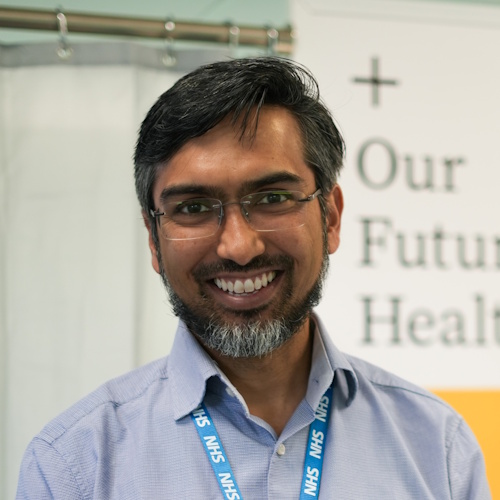
Professor Raghib AliOur Future Health 
Professor Raghib AliOur Future Health Professor Raghib Ali is the CEO, Chief Investigator and Chief Medical Officer of Our Future Health, the largest health research programme of its kind in the world with over 2.5 million participants. He is also a Clinical Epidemiologist at the University of Cambridge; Research Professor at New York University Abu Dhabi and an Honorary Consultant with the Office for Health Disparities and Improvement. He graduated from Cambridge University and has been awarded postgraduate degrees in Epidemiology and Public Health from the Universities of London, Cambridge and Oxford and is a Fellow of the Royal College of Physicians. His main research interests are in health inequalities and specifically in improving understanding of the causes of non-communicable diseases in neglected populations – in the UK, India and the Middle East. He has been involved in population health research since 2004 nationally and globally, working firstly on UK Biobank, then leading studies of cancer incidence by ethnic group in England and India from 2005 to 2013 and established the UAE Healthy Future Study in 2014 which focuses on understanding the causes of common chronic diseases including obesity, diabetes and cardiovascular disease. He was awarded an OBE in the Queen’s Birthdays Honours 2022 for services to the NHS and the Covid-19 response and elected as an Honorary Fellow of the Faculty of Public Health, ‘the highest accolade the Faculty can bestow and is awarded to those who have given exceptional service to the science, literature or practice of public health’ in April 2023. |
| 15:10-15:25 |
Genomics England — linking clinical care and research to support better prediction, prevention and early diagnosis
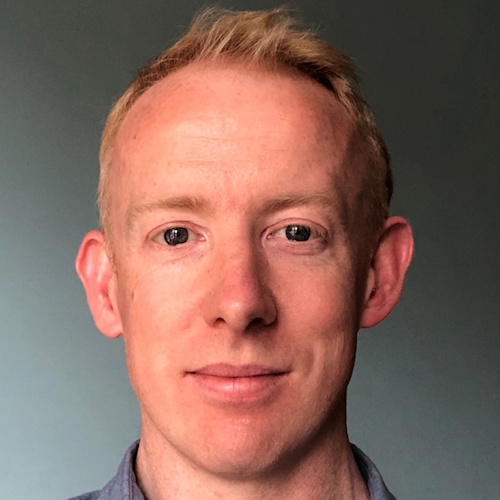
Dr Richard ScottGenomics England 
Dr Richard ScottGenomics England Dr Richard Scott is Chief Executive Officer at Genomics England and before this was Chief Medical Officer and Deputy CEO. He joined the organisation in 2015. He is also a Consultant and Honorary Associate Professor in Clinical Genetics at Great Ormond Street Hospital for Children and the UCL Institute of Child Health where his practice focuses on diagnosing children with rare multisystem disorders. Richard trained in medicine at Cambridge University and University College London. He specialised in Paediatrics and subsequently Clinical Genetics in London and completed his PhD on childhood cancer syndromes at the Institute of Cancer Research. Through his clinical practice and in his role at Genomics England he is passionate about harnessing the power of new genomic technologies for the benefit of all patients in mainstream healthcare. |
| 15:25-15:40 |
TBA
|
| 15:40-15:50 |
Q&A
|
Chair
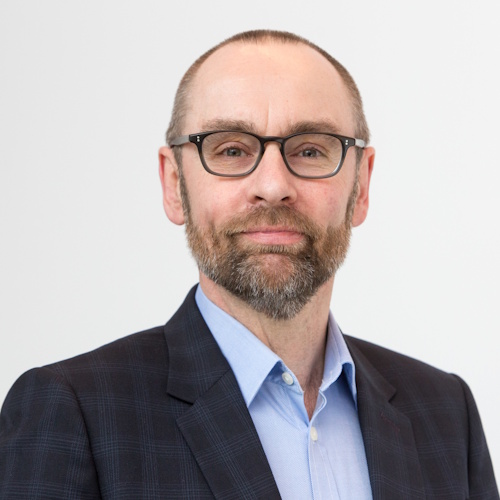
Dr Tony Wood FMedSci FRS
GSK

Dr Tony Wood FMedSci FRS
GSK
Tony Wood was appointed Chief Scientific Officer designate on 19 January 2022 and became Chief Scientific Officer, with full accountability for GSK R&D, with effect from 1 August 2022.
Tony is a highly respected scientist and one of the world’s pre-eminent medicinal chemists, with more than 30 years of experience working across diverse disciplines of R&D to deliver innovative medicines. He joined GSK from Pfizer in 2017 as Senior Vice President, Medicinal Science and Technology, responsible for all science and technology platforms supporting the delivery of new medicines.
He has led large-scale global organisations in drug discovery and development in multiple therapeutic areas, including immunology, oncology and infectious diseases. Tony has been integral to delivering the recent improvements in GSK’s R&D productivity and central to developing its R&D approach focusing on science of the immune system, human genetics and advanced technologies. He built GSK’s functional genomics and AI/ML organisations from the ground up, and was the architect of collaborations with UK biotech Adrestia, Oxford University, and the Laboratory for Genomics Research with Jennifer Doudna.
Tony invented an HIV antiviral medicine for which he won several international awards including the PhRMA Discoverers Award, the Prix Galien USA, the ACS Heroes of Chemistry Award, and the UCB Ehrlich Award from the European Federation of Medicinal Chemistry.
Tony has lived and worked in both the UK and the US. He is a Fellow of the Academy of Medical Sciences, a Fellow of the Royal Society of Chemistry, from whom he has also received an Honorary Fellowship, and a Fellow of the Royal Society of Biology. Tony was closely involved with the UK Government’s COVID-19 planning, notably establishing the GSK/AstraZeneca/Cambridge University testing facility at the University’s Anne McLaren Laboratory.
Tony has a BSc in chemistry and PhD in organic synthesis from the University of Newcastle, and was a postdoctoral fellow at Imperial College, London.
| 16:10-17:10 |
Panel discussion
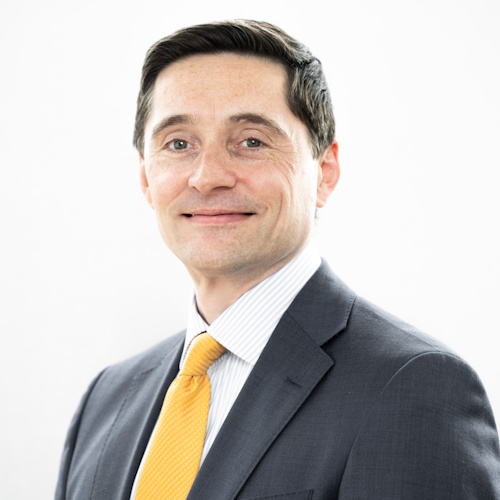
Lawrence TallonMedicines and Healthcare products Regulatory Agency (MHRA) 
Lawrence TallonMedicines and Healthcare products Regulatory Agency (MHRA) Lawrence Tallon is the Chief Executive of the Medicines and Healthcare products Regulatory Agency (MHRA). He was previously Deputy Chief Executive at Guy’s and St Thomas’ NHS Foundation Trust, where he led the Trust’s approach to strategy, technology, innovation and improvement. He has extensive experience across the healthcare sector in strategy and leadership roles, including within the Department of Health and Social Care alongside ministers and NHS leaders. 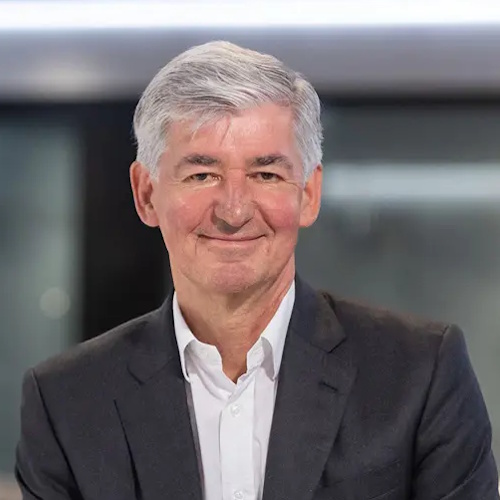
Sir Jonathan SymondsGSK 
Sir Jonathan SymondsGSK TBA
TBA |
|---|---|
| 17:10-17:15 |
Closing remarks

Dr Tony Wood FMedSci FRSGSK 
Dr Tony Wood FMedSci FRSGSK Tony Wood was appointed Chief Scientific Officer designate on 19 January 2022 and became Chief Scientific Officer, with full accountability for GSK R&D, with effect from 1 August 2022. Tony is a highly respected scientist and one of the world’s pre-eminent medicinal chemists, with more than 30 years of experience working across diverse disciplines of R&D to deliver innovative medicines. He joined GSK from Pfizer in 2017 as Senior Vice President, Medicinal Science and Technology, responsible for all science and technology platforms supporting the delivery of new medicines. He has led large-scale global organisations in drug discovery and development in multiple therapeutic areas, including immunology, oncology and infectious diseases. Tony has been integral to delivering the recent improvements in GSK’s R&D productivity and central to developing its R&D approach focusing on science of the immune system, human genetics and advanced technologies. He built GSK’s functional genomics and AI/ML organisations from the ground up, and was the architect of collaborations with UK biotech Adrestia, Oxford University, and the Laboratory for Genomics Research with Jennifer Doudna. Tony invented an HIV antiviral medicine for which he won several international awards including the PhRMA Discoverers Award, the Prix Galien USA, the ACS Heroes of Chemistry Award, and the UCB Ehrlich Award from the European Federation of Medicinal Chemistry. Tony has lived and worked in both the UK and the US. He is a Fellow of the Academy of Medical Sciences, a Fellow of the Royal Society of Chemistry, from whom he has also received an Honorary Fellowship, and a Fellow of the Royal Society of Biology. Tony was closely involved with the UK Government’s COVID-19 planning, notably establishing the GSK/AstraZeneca/Cambridge University testing facility at the University’s Anne McLaren Laboratory. Tony has a BSc in chemistry and PhD in organic synthesis from the University of Newcastle, and was a postdoctoral fellow at Imperial College, London. |
| 09:30-09:35 |
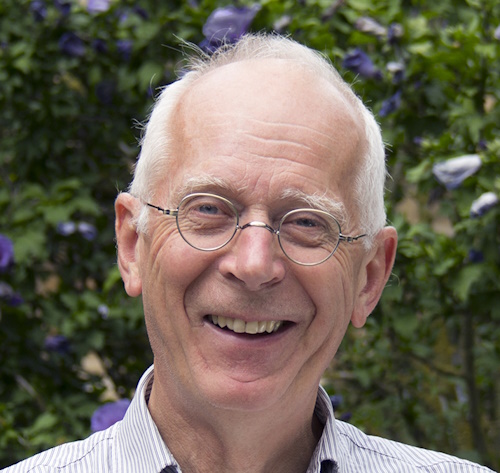
Sir David BaulcombeCambridge University 
Sir David BaulcombeCambridge University David Baulcombe is a plant molecular biologist with an interest in disease resistance. He and his group discovered small RNA and various protein components of an RNA silencing system that protects plants against viruses and affects patterns of plant gene expression. David’s work has been recognised by awards including the Gruber Genetics Prize (2014), the Balzan Prize (2012) (for epigenetics), the Wolf Prize for Agriculture (2010) the Albert Lasker Award for Basic Medical Research (2008) and a Royal Medal (2006) of the Royal Society. He is an International Member of the National Academy of Sciences (USA) (elected 2005) and was made a Knight Bachelor in 2009. Since 2007 he is Professor of Botany (Regius since 2012) (now Emeritus) in Cambridge and he was a Royal Society Research Professor (2007-2022). |
|---|
Chair
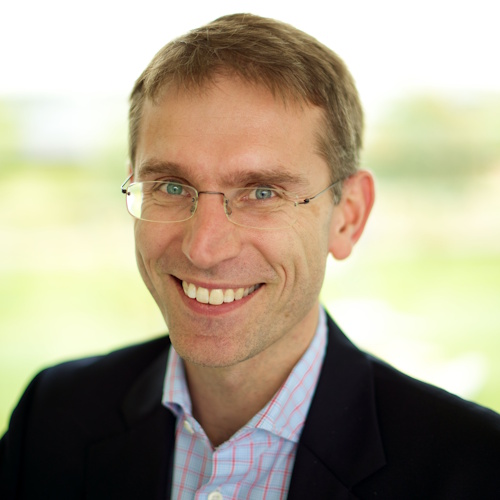
Dr Edward Piper
AstraZeneca

Dr Edward Piper
AstraZeneca
| 09:35-09:40 |
Introduction to Session 4

Dr Edward PiperAstraZeneca 
Dr Edward PiperAstraZeneca |
|---|---|
| 09:40-09:55 |
Concept to implementation of an early diagnostic: lessons from the oesophagus
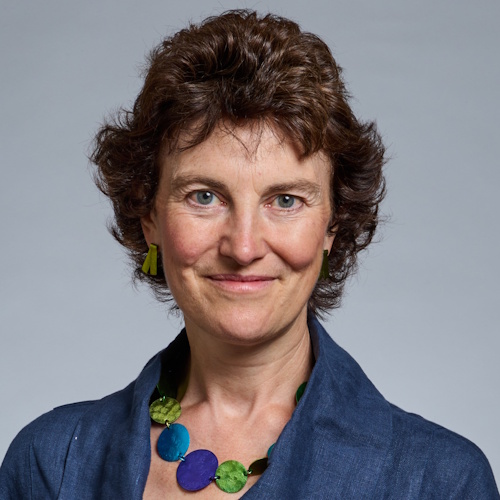
Professor Rebecca Fitzgerald FRSUniversity of Cambridge 
Professor Rebecca Fitzgerald FRSUniversity of Cambridge Rebecca Fitzgerald OBE FMedSci HonFREng FRCP EMBO FRS is Professor of Cancer Prevention and Founding Director of the Early Cancer Institute and Head of University Dept of Oncology at the University of Cambridge and practices medicine as Hon. Consultant in Gastroenterology and Cancer Medicine at Addenbrooke's Hospital. After training in Cambridge, Stanford and London she moved to Cambridge to focus on research to understand how tissues become cancerous and whether identifying pre-cancer at scale can reduce cancer morbidity and mortality, focussing on the upper GI tract. Interdisciplinary research is key to her approach, especially with bioengineering and public health, which forms the philosophy underpinning the Early Cancer Institute. Her work to develop and implement a non-endoscopic capsule sponge and related biomarker assays for detection of Barrett's oesophagus and associated dysplasia has gone from inception to clinical implementation through her start-up Cyted Health. Rebecca has contributed to evidence reviews and policy work around screening including for the Department of Health in the UK and led a review of cancer screening for the European Commission that led to new screening policy for EU member states. She been awarded several prizes including the Westminster Medal, an NHS Innovation prize, and the Don Listwin Early Detection Prize. In 2022 Rebecca was awarded an OBE for services to cancer research. |
| 09:55-10:10 |
Targeted screening for prostate cancer using germline genetics
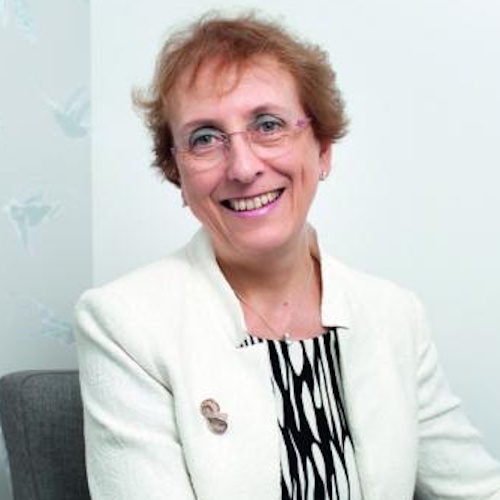
Professor Ros EelesThe Institute of Cancer Research / The Royal Marsden NHS Foundation Trust 
Professor Ros EelesThe Institute of Cancer Research / The Royal Marsden NHS Foundation Trust Professor of Oncogenetics, The Institute of Cancer Research (ICR) and Honorary Consultant in Clinical Oncology and Oncogenetics, The Royal Marsden Hospital (RMH). Professor Eeles is both a clinician and scientist and has been instrumental in ensuring new discoveries in cancer genetics immediately benefit patients, particularly in her speciality areas of genetic predisposition to prostate cancer from rare and common constitutional genomic variation. She trained at the University of Cambridge and St Thomas’ Hospital Medical School, has a PhD in cancer genetics and is a fellow of the Royal College of Physicians of London and the Royal College of Radiologists (Clinical Oncology Faculty). She is also the Genomics Champion for The Royal College of Radiologists (Clinical Oncology Faculty). She leads the largest prostate cancer genetic study in the UK, set up an international consortium that involves over 100 research groups worldwide, and is leading multiple clinical trials and screening studies. She also started the flagship, Prostate Risk clinic at the RMH to evaluate the increasing role of genetic testing in men with and at risk of prostate cancer. She has sat on many genetics advisory committees, both national and international. She is author on over 500 papers and her book which she led as lead editor ‘Cancer Prevention and Screening’ won the BMA Chairman’s Book of the Year Award in 2019. |
| 10:10-10:25 |
Personalising breast screening
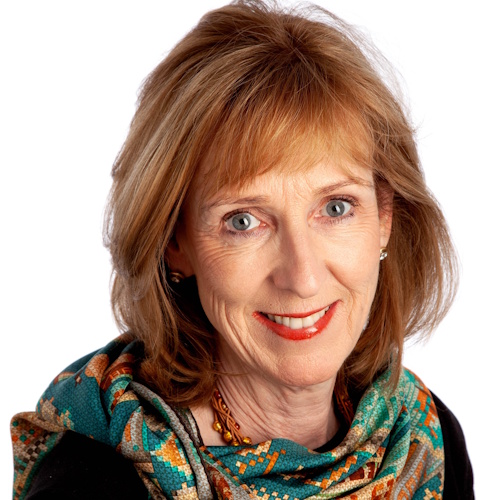
Professor Fiona GilbertUniversity of Cambridge 
Professor Fiona GilbertUniversity of Cambridge Professor Gilbert, Department of Radiology, University of Cambridge undertakes clinical work in breast cancer and oncology and evaluating new imaging technology assessing impact on patient care. She leads multicentre trials across the UK and collaborates internationally. She has evaluated various imaging techniques including digital breast tomosynthesis, MRI, Whole Breast Ultrasound and Contrast Enhanced Mammography and Artificial Intelligence. She uses multimodal functional imaging with MRI and PET to better understand cancer growth and novel treatments. Since 2012 Professor Gilbert has been awarded fifteen competitive grants worth over £20M. Previously she was Chair of the research committee of the Royal College of Radiologists, Chair British Society of Breast Radiology, President of the European Society of Breast Imaging, Head of department of Radiology in University of Cambridge and prior to that University of Aberdeen, member of several NHS committees and advisory panels. She is lead advisor in AI for the Royal College of Radiologists. She is a Board member of an investment company. Professor Gilbert has over 300 peer reviewed publications, 6 book chapters and numerous conference abstracts. She is a regular speaker at international Radiology conferences in Chicago and Vienna and was awarded Honorary membership of Radiological Society of North America, Honorary fellowship of the American College of Radiologists, the Gold Medal from the European Society of Radiology, Fellowship of the Royal Society of Edinburgh and Fellowship of the Academy of Medical Sciences. |
| 10:25-10:40 |
Genomics-driven targeting of metastasis and therapy resistance
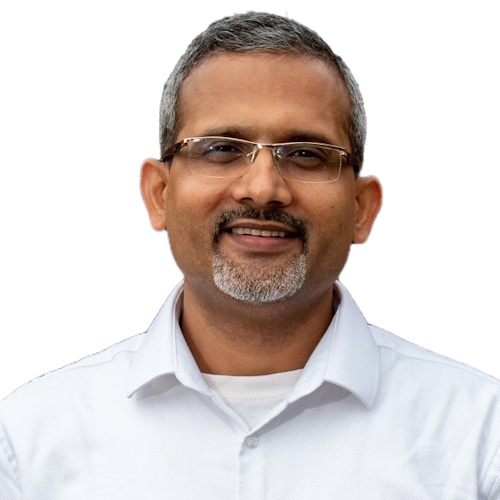
Professor Vijay TiwariInstitute of Molecular Medicine, SDU, Odense, Denmark 
Professor Vijay TiwariInstitute of Molecular Medicine, SDU, Odense, Denmark Prof. Vijay Tiwari is Professor and Head of Research at the Institute of Molecular Medicine, Faculty of Health Sciences, SDU, Denmark as well as a Senior Consultant at the Department of Clinical Genetics, Odense University Hospital and Chair at the Danish Institute of Advanced Studies (DIAS). His team employs a highly multidisciplinary approach combining cutting-edge genomics, epigenetics and molecular biology tools together with computational biology tools in defined model to understand cancer progression and disorders of the brain and develop avenues for precision medicine. In pursuit of the best academic opportunities, his education, training and independent research have spanned seven countries in the last three decades (Denmark, UK, Germany, Switzerland, USA, Sweden and India). As an internationally recognized scientist, his research excellence is reflected by his research achievements, internationally impactful publications, several recognized awards, acquisition of third-party funds and an invitation to various internationally reputed meetings as a speaker. His research has been published in high-impact journals including publications in leading journals like Nature, Nature Genetics, Nature Cell Biology, Cell Stem Cell, Cancer Cell, Science Discovery, Genes & Development, Genome Research, EMBO Journal, Nature Communications, PNAS etc. His work has also been recognized by a large number of national and international awards and recognitions including the DNRF Chair Award (2023), Faculty Member of the Year Award (2022), Executive Board Membership to Wellcome-Turing program in Health Data Science (2020), induction as a BBSRC pool of expert (2019), Innovative Ideas Award (2018), Wilhelm Sander-Stiftung Award for outstanding contributions in biomedical research (2015), Faculty Member of the Year Award (2014), Bruno Speck Award for outstanding work in the field of stem cell research (2013) and EU Young Investigator's RISE1 Award (Research Integrating Systems Biology, Epigenetics) (2012). |
| 10:40-10:50 |
Q&A
|
Chair

Dr Edward Piper
AstraZeneca

Dr Edward Piper
AstraZeneca
| 11:20-11:25 |
Introduction to Session 5

Dr Edward PiperAstraZeneca 
Dr Edward PiperAstraZeneca |
|---|---|
| 11:25-11:40 |

Dr Edward PiperAstraZeneca 
Dr Edward PiperAstraZeneca |
| 11:40-11:55 |
Re-imagining viral diagnostics using microscopy and machine learning
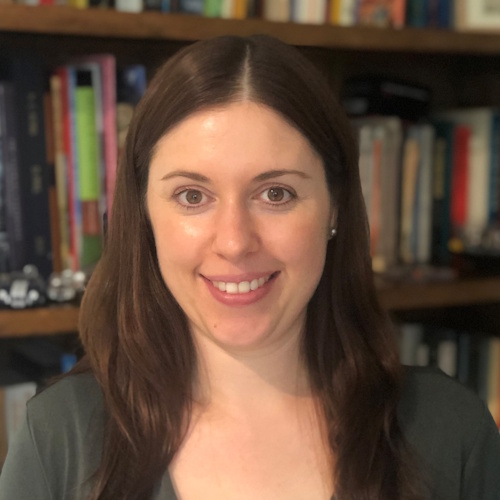
Dr Nicole RobbUniversity of Warwick 
Dr Nicole RobbUniversity of Warwick Nicole Robb is an Associate Professor at the Warwick Medical School and a visiting lecturer at the University of Oxford. She completed a BSc in Microbiology at Imperial College London before doing a DPhil at the University of Oxford, where she specialised in the field of influenza virology. Following a post-doc in Physics at the University of Oxford she was awarded a Royal Society Dorothy Hodgkin Fellowship to set up her independent research group in the Warwick Medical School. Her current research interests include using biophysical techniques for rapid pathogen detection and the application of machine learning algorithms for image analysis. During the Covid-19 pandemic she was seconded to the UKHSA as a subject matter expert on diagnostics. She holds several patents on viral diagnostic technology and is co-founder of a spinout company from the University of Oxford that is working on rapid viral testing. She is also PhD Course Director of the University of Warwick’s Institute for Global Pandemic Planning (IGPP), an interdisciplinary initiative formed to research solutions to mitigate the effects of pandemics and is part of the CONTAIN project, advising on the virology underpinning zoonosis and disease transmission risks. |
| 11:55-12:10 |
Early diagnosis for cardiovascular risk — extracting more value from CT imaging
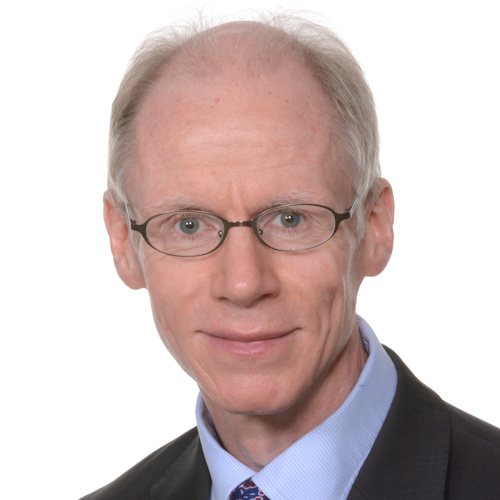
Professor Keith ChannonUniversity of Oxford 
Professor Keith ChannonUniversity of Oxford Professor Channon is the Field Marshal Earl Alexander Professor of Cardiovascular Medicine and Head of Radcliffe Department of Medicine at the University of Oxford. He is an Honorary Consultant Cardiologist at the John Radcliffe Hospital, Oxford. He is Director of the Oxford Academic Health Partners (OAHP) and Chairs the NIHR-BHF Cardiovascular Partnership across the major UK centers. His research group investigates the biology of cardiovascular disease and atherosclerosis, particularly using genetic models, and links these with clinical and translational research in coronary artery disease, through his leadership of the Oxford Acute Myocardial Infarction (OxAMI) Study. Professor Channon served as Director of the National Institute for Health Research (NIHR) Oxford Biomedical Research Centre (BRC) during 2008-2018, was Deputy Head of Medical Sciences Division (Research), University of Oxford, from 2016-2021 and Director of R&D at Oxford University Hospitals from 2013-2021. He is a past Chairman of the British Atherosclerosis Society, an NIHR Emeritus Senior Investigator, and a Fellow of the Academy of Medical Sciences. He plays active roles on grant funding and other committees at the MRC, British Heart Foundation, Wellcome Trust and the British Cardiac Society. |
| 12:10-12:25 |
Healthy brain ageing — challenges and opportunities
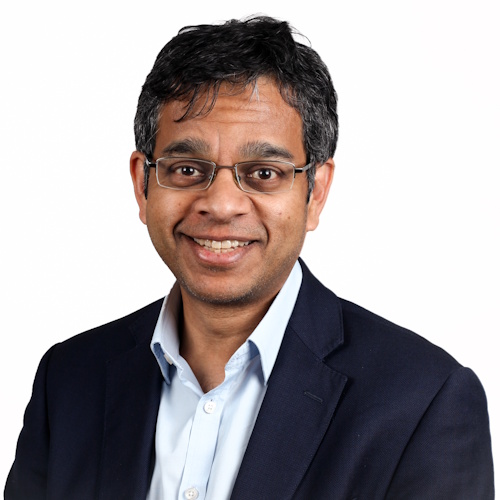
Professor Siddharthan ChandranUK Dementia Research Institute 
Professor Siddharthan ChandranUK Dementia Research Institute Siddharthan Chandran is Director of the UK MRC Dementia Research Institute. He graduated from Southampton Medical School, trained in neurology at Queens Square, UCL and Cambridge where he also undertook a PhD in developmental neurobiology. He holds the MacDonald Chair of Neurology, at the University of Edinburgh, is Professor of Neurology at University College London, and Visiting Faculty at the Centre for Brain Research, Indian Institute of Science, India. He is best known for his work in motor neuron disease (MND) and multiple sclerosis (MS). His work encompasses the use of human induced pluripotent stem cells to identify cellular phenotypes of neurodegenerative diseases (NDDs) as well as pioneering innovation in multi-arm, multi-stage platform trials for NDDs. He is a Fellow of the Royal Society of Edinburgh and the Academy of Medical Sciences. |
| 12:25-12:35 |
Q&A
|
Chair

Professor Dame Sue Hill
Chief Scientific Officer for England and Senior Responsible Officer for Genomics in the NHS

Professor Dame Sue Hill
Chief Scientific Officer for England and Senior Responsible Officer for Genomics in the NHS
Professor Dame Sue Hill DBE FMedSci FRSB FRCP(Hon) FRCPath (Hon) FHCS (Hon) is the Chief Scientific Officer for England and the NHS in England, is the Head of Profession for the scientific workforce and provides scientific leadership and advice for the wider health and care system. A respiratory scientist by background, she has an international academic and clinical research reputation. Dame Sue leads and directs Genomics in the NHS, driving the world-leading programme to introduce a nationwide Genomic Medicine Service working in partnership between the NHS and academia, industry, UK and international governments/initiatives, building on her work in heading up the NHS contribution to the world-leading 100,000 Genomes Project. Sue was made a Dame Commander in 2018 in recognition of the scale of her contribution to British genomics, having previously been awarded an OBE in 2005 in recognition of her services to healthcare science.
| 13:35-13:40 |
Introduction to Session 6

Professor Dame Sue HillChief Scientific Officer for England and Senior Responsible Officer for Genomics in the NHS 
Professor Dame Sue HillChief Scientific Officer for England and Senior Responsible Officer for Genomics in the NHS Professor Dame Sue Hill DBE FMedSci FRSB FRCP(Hon) FRCPath (Hon) FHCS (Hon) is the Chief Scientific Officer for England and the NHS in England, is the Head of Profession for the scientific workforce and provides scientific leadership and advice for the wider health and care system. A respiratory scientist by background, she has an international academic and clinical research reputation. Dame Sue leads and directs Genomics in the NHS, driving the world-leading programme to introduce a nationwide Genomic Medicine Service working in partnership between the NHS and academia, industry, UK and international governments/initiatives, building on her work in heading up the NHS contribution to the world-leading 100,000 Genomes Project. Sue was made a Dame Commander in 2018 in recognition of the scale of her contribution to British genomics, having previously been awarded an OBE in 2005 in recognition of her services to healthcare science. |
|---|---|
| 13:40-13:55 |
TBA
|
| 13:55-14:10 |
TBA
|
| 14:10-14:25 |
TBA
|
| 14:25-14:40 |
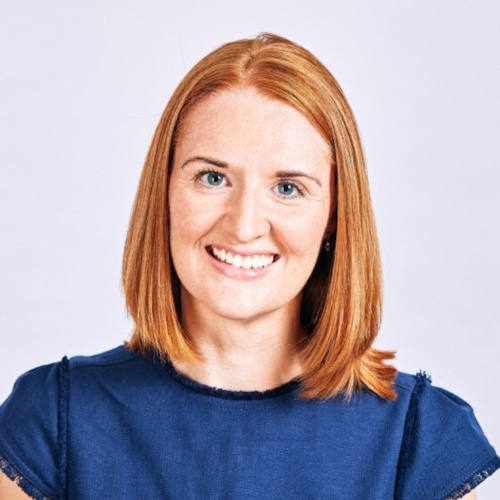
Dr Harriet HolmeExec Chair PCD Research, Drug Development Clinician Weatherden 
Dr Harriet HolmeExec Chair PCD Research, Drug Development Clinician Weatherden Dr Harriet Holme is a senior life sciences leader with over 20 years of experience spanning the NHS, academia, early-stage drug development, rare disease innovation, and system-level policy. She brings a unique cross-sector perspective that bridges clinical practice, translational science, and strategy, enabling her to identify unmet needs and deliver patient-first innovations that scale. A former NIHR Clinician Scientist specialising in paediatric oncology, Harriet completed her PhD at the ICR/UCL, where her research focused on synthetic lethal approaches in osteosarcoma. Her scientific grounding underpins a career dedicated to translating complex science into meaningful impact for patients. For the past four years, Harriet has worked in early-phase drug development at Weatherden, serving as a fractional CMO to biotech clients. She brings clinical credibility and deep translational expertise to cross-functional teams, guiding strategy and execution. As the Founder and Executive Chair of PCD Research, and as a mother to a child with a rare disease, Harriet combines professional and personal insights into the challenges facing rare disease communities. Motivated by unmet need, she conceived a national operating model for rare disease that translates emerging science, technology, and regulation into patient and economic value, building a broad cross-sector coalition spanning government, regulators, industry, and global institutions to secure alignment, momentum and reform. |
| 14:40-14:50 |
Q&A
|
Chair

Dr Tony Wood FMedSci FRS
GSK

Dr Tony Wood FMedSci FRS
GSK
Tony Wood was appointed Chief Scientific Officer designate on 19 January 2022 and became Chief Scientific Officer, with full accountability for GSK R&D, with effect from 1 August 2022.
Tony is a highly respected scientist and one of the world’s pre-eminent medicinal chemists, with more than 30 years of experience working across diverse disciplines of R&D to deliver innovative medicines. He joined GSK from Pfizer in 2017 as Senior Vice President, Medicinal Science and Technology, responsible for all science and technology platforms supporting the delivery of new medicines.
He has led large-scale global organisations in drug discovery and development in multiple therapeutic areas, including immunology, oncology and infectious diseases. Tony has been integral to delivering the recent improvements in GSK’s R&D productivity and central to developing its R&D approach focusing on science of the immune system, human genetics and advanced technologies. He built GSK’s functional genomics and AI/ML organisations from the ground up, and was the architect of collaborations with UK biotech Adrestia, Oxford University, and the Laboratory for Genomics Research with Jennifer Doudna.
Tony invented an HIV antiviral medicine for which he won several international awards including the PhRMA Discoverers Award, the Prix Galien USA, the ACS Heroes of Chemistry Award, and the UCB Ehrlich Award from the European Federation of Medicinal Chemistry.
Tony has lived and worked in both the UK and the US. He is a Fellow of the Academy of Medical Sciences, a Fellow of the Royal Society of Chemistry, from whom he has also received an Honorary Fellowship, and a Fellow of the Royal Society of Biology. Tony was closely involved with the UK Government’s COVID-19 planning, notably establishing the GSK/AstraZeneca/Cambridge University testing facility at the University’s Anne McLaren Laboratory.
Tony has a BSc in chemistry and PhD in organic synthesis from the University of Newcastle, and was a postdoctoral fellow at Imperial College, London.
| 15:15-15:20 |
Introduction to the closing plenary

Dr Tony Wood FMedSci FRSGSK 
Dr Tony Wood FMedSci FRSGSK Tony Wood was appointed Chief Scientific Officer designate on 19 January 2022 and became Chief Scientific Officer, with full accountability for GSK R&D, with effect from 1 August 2022. Tony is a highly respected scientist and one of the world’s pre-eminent medicinal chemists, with more than 30 years of experience working across diverse disciplines of R&D to deliver innovative medicines. He joined GSK from Pfizer in 2017 as Senior Vice President, Medicinal Science and Technology, responsible for all science and technology platforms supporting the delivery of new medicines. He has led large-scale global organisations in drug discovery and development in multiple therapeutic areas, including immunology, oncology and infectious diseases. Tony has been integral to delivering the recent improvements in GSK’s R&D productivity and central to developing its R&D approach focusing on science of the immune system, human genetics and advanced technologies. He built GSK’s functional genomics and AI/ML organisations from the ground up, and was the architect of collaborations with UK biotech Adrestia, Oxford University, and the Laboratory for Genomics Research with Jennifer Doudna. Tony invented an HIV antiviral medicine for which he won several international awards including the PhRMA Discoverers Award, the Prix Galien USA, the ACS Heroes of Chemistry Award, and the UCB Ehrlich Award from the European Federation of Medicinal Chemistry. Tony has lived and worked in both the UK and the US. He is a Fellow of the Academy of Medical Sciences, a Fellow of the Royal Society of Chemistry, from whom he has also received an Honorary Fellowship, and a Fellow of the Royal Society of Biology. Tony was closely involved with the UK Government’s COVID-19 planning, notably establishing the GSK/AstraZeneca/Cambridge University testing facility at the University’s Anne McLaren Laboratory. Tony has a BSc in chemistry and PhD in organic synthesis from the University of Newcastle, and was a postdoctoral fellow at Imperial College, London. |
|---|---|
| 15:20-15:40 |
Prizing health: new ideas in the science and support of healthspan

Dr Jamie JusticeXPRIZE Foundation 
Dr Jamie JusticeXPRIZE Foundation Dr Jamie Justice is the Executive Vice President Health Domain, Director of the $101M Healthspan Prize at XPRIZE Foundation, and Adjunct Professor in Internal Medicine at Wake Forest University School of Medicine (WFUSM). She was the recipient of the Jarrahi Research Scholars Fund in Geroscience Innovation, the 2022 Vincent Cristofalo Rising Star in Aging Research, and the 2022 NIA Nathan W Shock Awardee. Her training background at University of Colorado Boulder, academic research at WFUSM, and global leadership at XPRIZE advance translation of therapeutics to improve human healthspan and ovarian function. |
| 15:40-16:00 |
Blood signatures of brain aging and disease
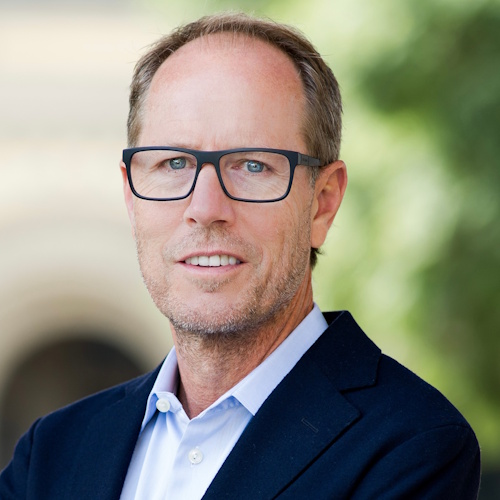
Professor Tony Wyss-CorayStanford University 
Professor Tony Wyss-CorayStanford University Tony Wyss-Coray is the D.H. Chen Distinguished Professor of Neurology and Neurological Sciences and the Director of the Phil and Penny Knight Initiative for Brain Resilience at Stanford University. His lab studies brain aging and neurodegeneration with a focus on age-related cognitive decline and Alzheimer’s disease. The Wyss-Coray research team discovered that circulatory blood factors can modulate brain structure and function and factors from young organisms can rejuvenate old brains. Current studies focus on the molecular basis of the systemic communication with the brain by employing a combination of genetic, cell biology, and –omics approaches in mice, and humans. Wyss-Coray has presented his ideas at Global TED, the Tencent WE Summit, the World Economic Forum, and he was voted Time Magazine’s “The Health Care 50” most influential people transforming health care in 2018. He co-founded Alkahest Inc. and several other companies targeting Alzheimer’s and neurodegeneration; he is a AAAS Fellow and has been the recipient of an NIH Director’s Pioneer Award, a Zenith Award from the Alzheimer’s Association, and a NOMIS Foundation Award. |
| 16:00-16:20 |
TBA
|
| 16:20-16:30 |
Closing remarks

Dr Edward PiperAstraZeneca 
Dr Edward PiperAstraZeneca |

